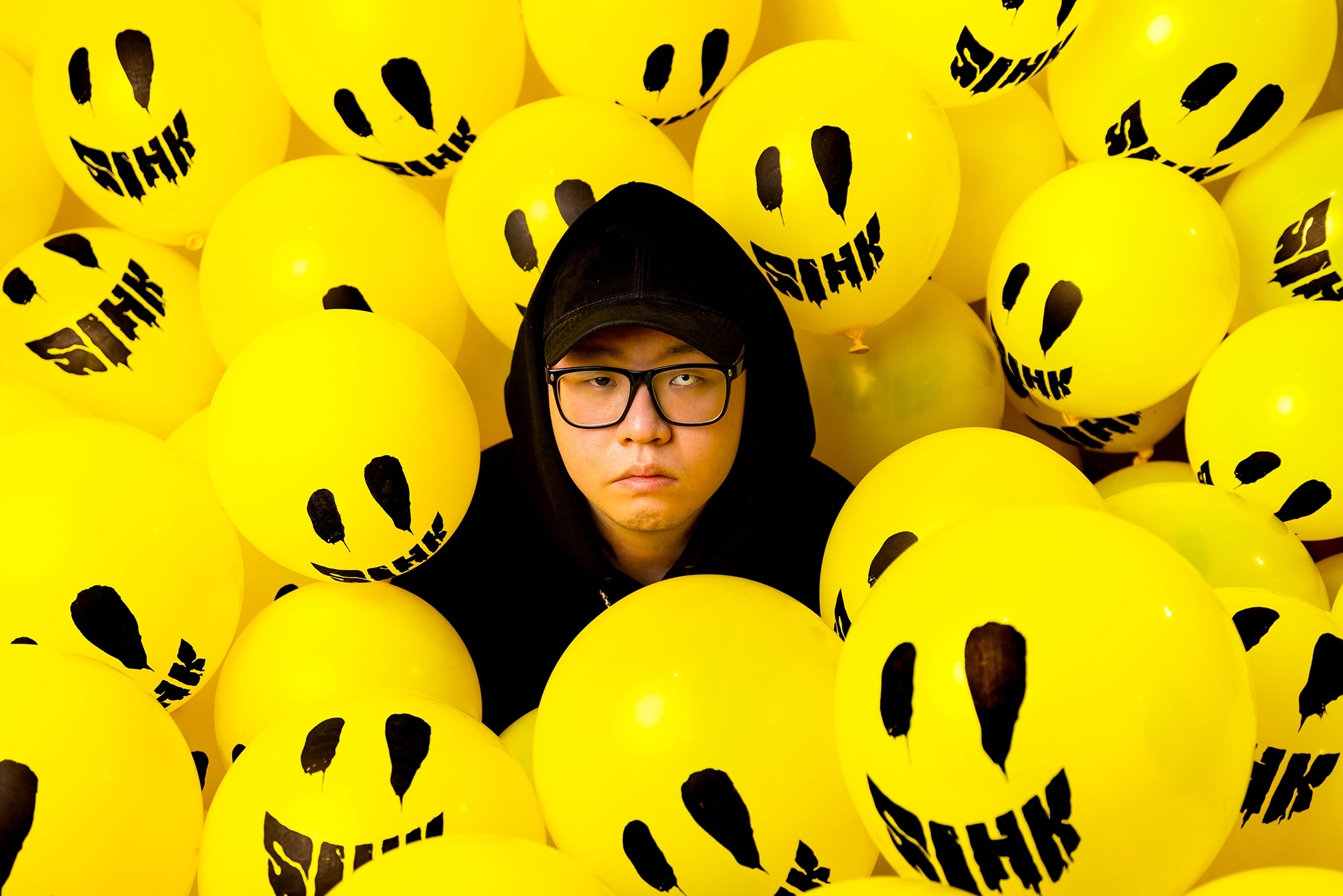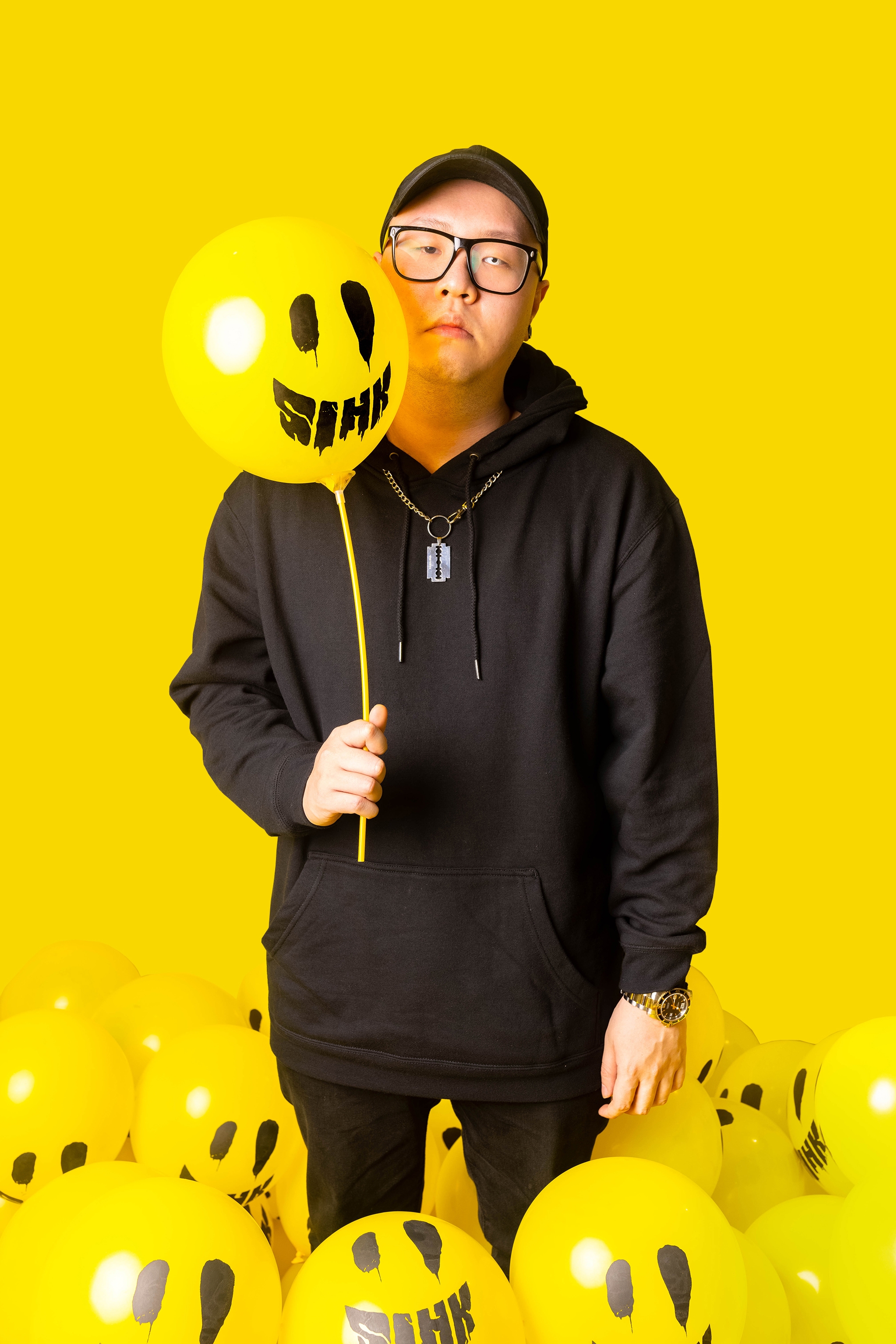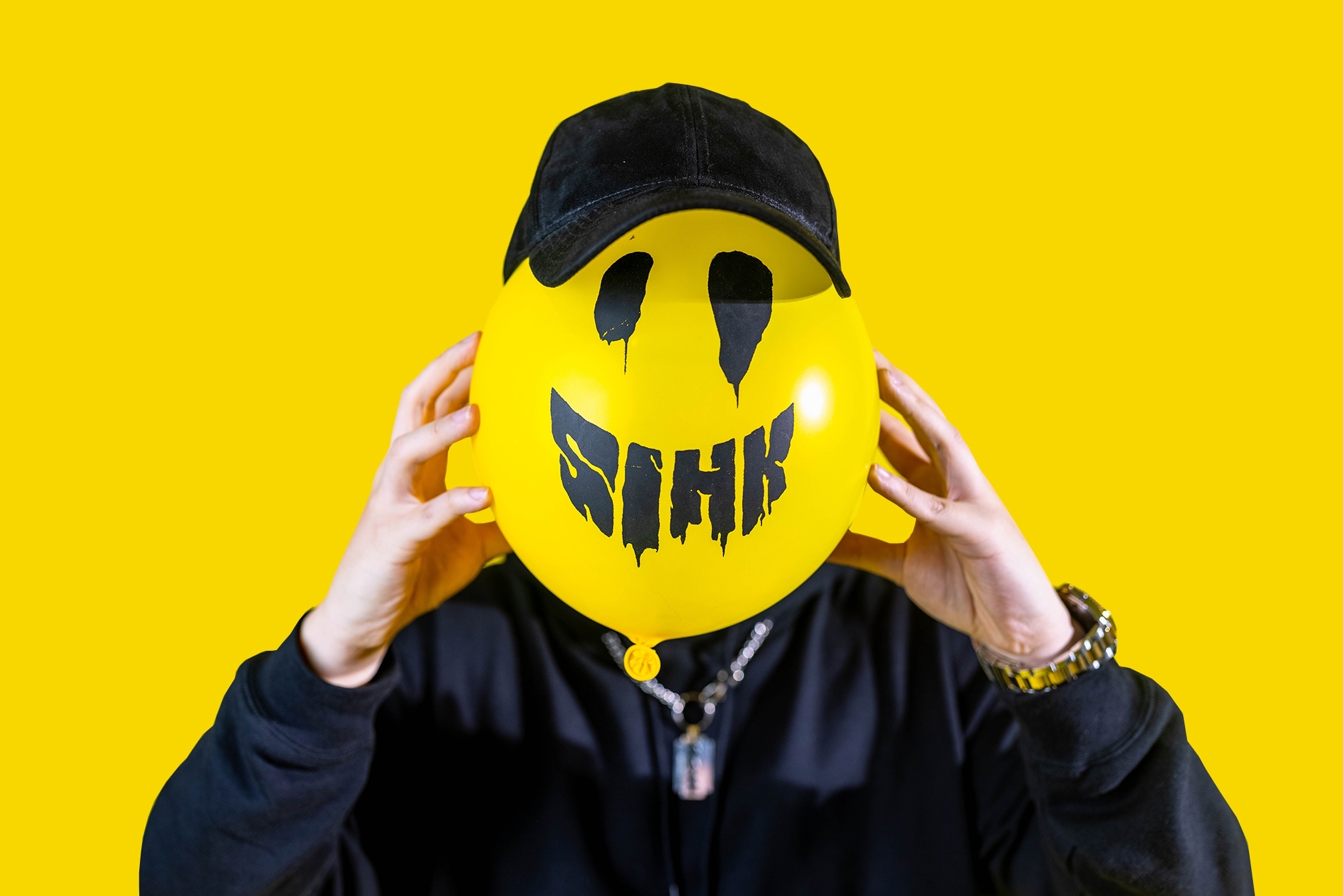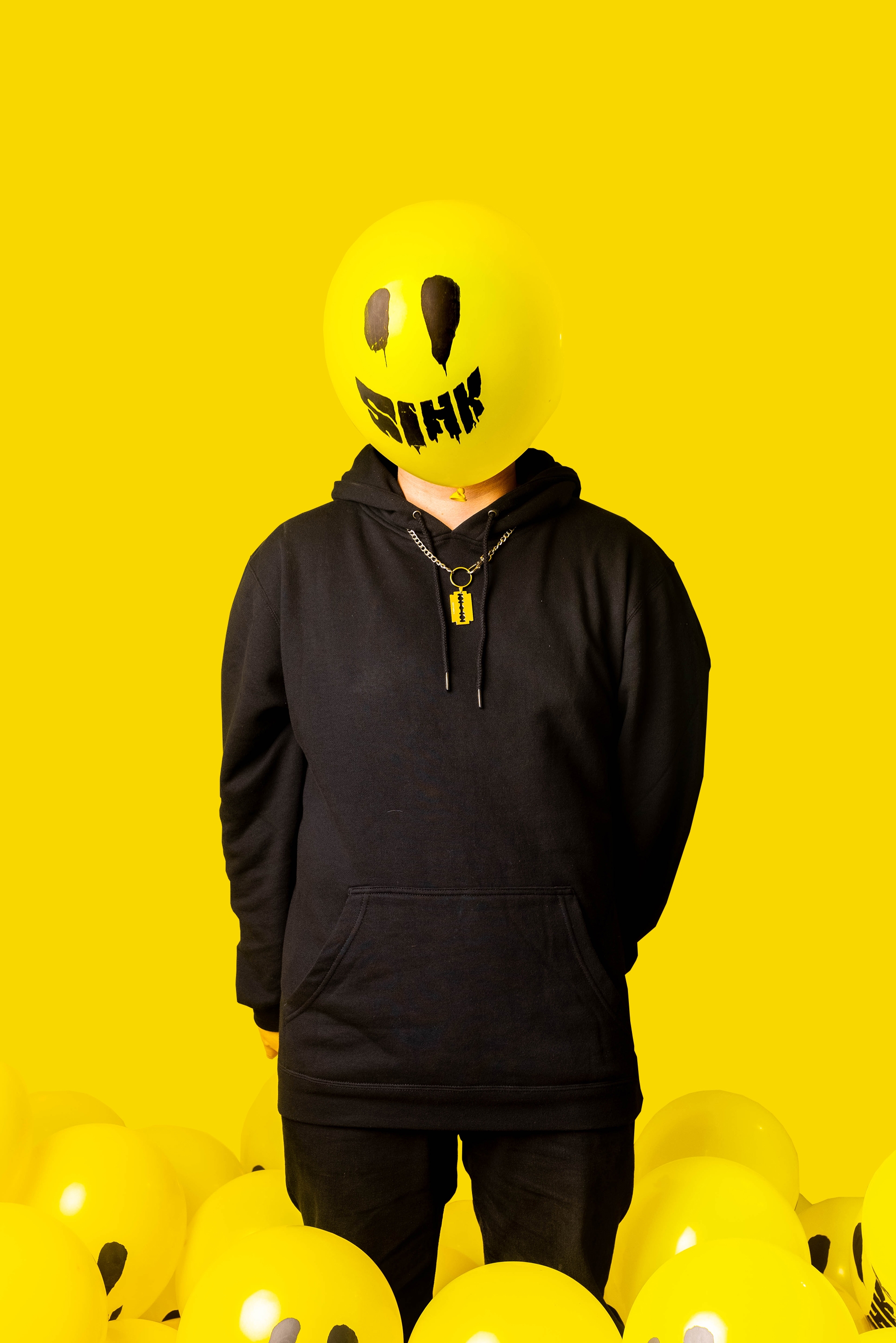 Features
Features
The rebirth of SIHK: Meet the Indonesian DJ who quit hip hop for happy hardcore
One week after the release of his Hypercore EP, SIHK reflects on the evolution of his career & why the former poster child for hip hop pivoted to 175 BPM
I nearly spit my wine out when SIHK told me that he started his music journey as the frontman of a metal band. The story most often told about him is as Rich Brian’s producer (then known as Rich Chigga) and more recently as a DJ known for playing anything with a BPM of over 175. Even as we speak, an EDM-charged version of hardcore wafts from a clandestine corner of the Barong Hotel, a luxury villa set up in Bali by Yellow Claw where SIHK has been holed up for the last few months putting the finishing touches on his EP in-between livestreams and late-night McDonalds with Juyen Sebulba. But maybe I shouldn’t have been so surprised, since some genres of metal can reach near 200 beats per minute. Having also made this parallel is exactly how SIHK arrived at his latest Hypercore EP, which was released on Friday August 5 via Barong Family, and coined a genre of the same name. The four-track EP is lauded as SIHK’s magnum opus, a shining beacon of who he is as an artist and the multi-year journey that has taken him across the globe to arrive at his true artistry after years of meandering the musical spectrum.
Just before the turn of the century, Indonesia's indie music scene was thriving and western-influenced subcultures were ablaze. Considered latecomers to many music cultures elsewhere in Asia, punk rock, metal and hardcore music were bubbling music communities in Indonesia with thanks to western-educated students returning home armed with cassettes and a raucous punk rock energy. At the time, clubs were only playing disco. SIHK was born in 1995, just when Indonesians were fully embracing their love for loud music, and spent most of his teenage years in over his head about heavy metal. By the time he was 14, he was already primed to make an album and hit the road on tour until one day his guitarist said to him: “Yeah, man. We're just doing this for fun. We're not going to make it because we're Asians."
“I guess we had this idea implanted in our minds that Asians never really make it in the music industry,” SIHK told us. “Not unless you're just doing Asian-style music, like Korean, Chinese or Indonesian pop music. Heavy metal was basically like this white people music in a way. At least that’s how we saw it.”
So he quit the band. “If my friends couldn’t see a future, then I didn’t want to be in the band anymore.” Even at 14, SIHK knew his music mania wasn’t just for fun — he was already ripping software off the Internet and recreating music after discovering Garage Band at a friend’s house — and it was something he wanted to do for the rest of his life. He wanted to be paid to play music, so he moved to the USA.

Seattle was a blur. In Indonesia, he was too young to experience rave culture, but in Seattle, the scene swallowed him whole. During his first week of classes at Seattle Community College, he serendipitously met a guy in a Suicide Silence T-shirt (an American deathcore band) and quickly made friends with him thanks to that conversation starter. Except he envisioned a friendship nurtured in a mosh pit and got another kind of whiplash when his new buddy invited him to a psytrance party. “What’s psytrance?” SIHK asked.
“He picked me up from my dormitory and we started driving towards this small town outside of Seattle. Suddenly, we were going into a forest. I was like, ‘Where is this guy taking me?’ Then I heard music and saw lights jutting from the forest. I ended up getting really, really, really fucked up for three days at this completely illegal rave. And that was my first exposure to rave culture, even though I didn’t know what the genres were called. But from that party on, I went to raves every single weekend.”
During the week, instead of unpacking American History, SIHK was unravelling the sounds he was discovering on the weekends. He found that the tempos, riffs and BPMs of some types of electronic music had a similar backbone to what he grew up playing in a metal band and was already trying to make on his pirated copy of FL Studio when he was young — so he resumed teaching himself to recreate the synth stylings of metal songs. Obsessed with the inner workings of this eureka moment, he kept dissecting more of the music he grew up with — emo, punk, heavy metal, death metal, anime music, chiptune and J-rock — and discovered that there were elements of electronic music in everything he had been listening to since time immemorial.
“There was this one song called 'Interlude' by a metal band called Attack Attack! — I would call them metalcore. I broke it down, and it’s totally electronic music! It's a dance track sandwiched between metal, and so I started making stuff that sounded like that.”
In 2012, Seattle was in the middle of its own electronic awakening and where rave culture once only existed on the fringes of the large, its popularity was pushing it into the inner bowels of the city. The subculture, which was more of an extension of the 90s and embraced the initials PLUR over EDM, was exposing SIHK to music like hardstyle, happy hardcore, progressive house, trance and electro. He was flyering for free entry to every rave under every bridge and beyond he could find and his head was sponging styles of music he never knew existed (although Indonesia could brag about its rave culture at the time, he was too young for it growing up). He had a brief romance with life behind the decks on the weekends and got to test run the music he was making during the week; he was meeting people; he was partying — he was living the American (ravers) dream…until one day he woke up from the flurry on a flight back to Indonesia where nothing was waiting for him.
“I was doing so well over there that when I came back, it was like restarting from zero — I lost all my inspiration and I lost all my motivation.”

It's 2015 and EDM is taking over the world. A surefire way to surf into stardom, SIHK and a friend formed Overgroove for no reason other than to follow the blistering trend. But SIHK quickly found that the songs he most wanted to make didn't fit with Overgroove and the project was soon abandoned — but not before they scored an Indonesian horror movie centred around clowns called Badoet. Their last-ever gig as Overgroove was at Blowfish in Jakarta where his partner met a girl. The girl knew a girl and after a series of even more serendipitous events, SIHK is sitting in a cafe called Ninotchka across from Rich Brian (again, Rich Chigga at the time). A week later, on February 23, 2016, the video for Dat $tick came out on YouTube and went viral (it was later picked up by 88rising), racking up 185 million views — and SIHK was one of the star attractions.
“Dude, how funny would it be if I wore a pink polo shirt and a fanny pack and I just wear my dad's clothes, and then you guys look like thugs?” Rich Brian asked SIHK the night before they shot the video, who played one of the aforementioned thugs.
"I told him it would be pretty funny because he was initially just going to wear cool-looking clothes. The next day, we shot that music video — it took only a day.”
And just like that, SIHK — whose life had already swerved many times — careened yet again into an entirely new direction in his motley of a music career. He was suddenly living and breathing hip hop as his new friend became Indonesia’s biggest rapper seemingly overnight.
For most of that year, SIHK was along for the ride. He DJed Rich Brian’s first-ever show and played hype man for him at We The Fest in Jakarta. He accompanied the rapper to Taiwan, China and Tokyo. And when 88rising asked Brian for another track, Brian tapped SIHK to produce it. Nine months later, the made-in-Japan video for ‘Who Dat Be’ was born, amassing another 55 million plays. It was during this period that another idea started incubating — the transition from Ricky Tjong to SIHK had also begun.
“Before that, I didn't have a name. I was nobody. I was just an artist, someone who made music for fun. But SIHK started at Brian’s first show at Hide & Seek in Jakarta, which was a struggle to begin with because I still didn't have much of my own music. I was really sick at the gig, and I was wearing a mask — like an N95 mask. The bartender kept coming up to me and he was like, ‘Are you sick, mister? Mister, are you sick?’ And I was like, ‘Oh, cool name.’ And then I switched the C to an H and became SIHK at that show.”
Armed with a new name and loaded with celebrity status, under his mask SIHK was struggling with an identity crisis. The veneer was just an IRL metaphor for the way he was masking his life with comedy. Like a jack of all trades (but a master of none), SIHK was all over the place and heading down a career path where entropy reigned supreme. He was well versed as a multi-hyphenate artist but not one with a clear sonic identity. He had no idea what mark he was meant to leave on music.
“My mind told me I should not be a hip-hop producer, and that I still really wanted to do electronic music. Before Brian, I didn’t like hip hop at all. Heavy metal kids and hip hop didn’t match. I only got into it after I met Brian and that's only because he introduced me to $uicideboy$. To me, $uicideboy$ sounds like heavy metal in a hip hop form."
But SIHK was born with hustle and drive, and stayed with it. Hip hop gets its flex for its lyrical prowess, not complex rhythms that take months to percolate, so it made the most sense at the moment to keep churning out beats with Brian. The rapper was also leveraging his name and helped introduce SIHK to people over Instagram, eventually connecting him to artists like Trippy tha Kid, Max Wells, Lund and Kamiyada. SIHK scored a song with Ariel Nayaka, another Indonesian rapper, called ‘What U Know’ and it had UK grime and dubstep influences all over it. “And that’s when I was like, ‘Okay, cool. Dubstep is cool and it kind of ties in with the hip hop stuff I'm doing right now.’”
With this SIHK started to inch his way out of the hip hop scene by dabbling in a little more dubstep, but seesawed back to R’n'B after landing a collaboration with Indonesian songstress Nicole Zefanya, now known as NIKI. ‘See U Never’ saw SIHK once again return to 88rising, further than ever from the vision he had for himself.

For someone whose entire career was built upon chance encounters, it would not be out of place to credit the next pivot in his life to luck. In 2017, he met two people that would be instrumental in carving out the character we know today. The first being Tobie Fowler from ABSTRKT, who would eventually become his manager, and the other was Jim from Yellow Claw. I know you’re expecting a riveting SIHK-meets-Yellow Claw anecdote but there isn’t one: “I tried talking to Nils but he just kind of shrugged me off. He clarified that years later, and said he was just really tired and didn't want to talk to anyone. But Jim was really nice from the get-go. He gave me his e-mail and told me to send over demos. I sent over demos the day after. What happened after that? Nothing happened after that.”
A couple of months later, out of nowhere, he got an e-mail from Jim saying that Barong Family was going to sign his EP.
"I called it Send Nudes because I thought the Barong Family were so serious. And I was like, ‘I'm going to fuck this up.’ When they asked me what I wanted the EP to look like, I told them the visual had to be a bunch of me, my many faces. A collage of my faces. I even took a bunch of naked pictures!”
The EP, however, only contributed to his inability to define his own legacy. “The EP had no direction. It was dubstep with a little bit of hardstyle, moombahton and trap music. I was still making music that catered to what I thought people liked and also what connected to hip hop, which is why you’ll hear the trap and dubstep elements. I was confused, basically. A second EP rolled out the year after called Epic Side Quest which had a lot more four to the floor hardstyle sound. I really enjoyed making it but at the same time, I was worried it didn’t tie into my whole hip hop thing, and people still knew me as a hip hop producer. I just didn't know what the fuck I was doing. Then I worked with Ramengvrl and made a track with her, and I was just getting confused. More and more confused."
Then one day out of the blue, label mate Lil Texas posted a track to an Instagram group, with a call for action: “Hey, check out my 200 BPM track.”
“I listened to it and I was like, ‘This is amazing.’ And then I was like, ‘Oh my god. What is this?’ I started remembering, ‘Oh, this is sort of similar to the stuff I was listening to when I was younger, but just way cooler.’"
In 2019, the Barong Family held another studio camp in Thailand (the first was in Shanghai in 2017) and SIHK had an opportunity to connect with Lil Texas and a slew of other bleeding-edge DJs and producers like Dither and Radical Redemption. During that stint, he discovered that harder-edged beats sounded like home. But settling into a new and specific sound as an established artist, especially one who danced deftly between genres, was going to take some work. But still, he was at least returning home with some semblance of creative direction. A vision, if you must. Mentored by his now manager Tobie, he scored a gig at Djakarta Warehouse Project and made a bold decision mid-set: he played hardcore. Actually, it was well-received, and SIHK made history for being the only local DJ to ever ignite a mosh pit — playing out of a folder on his USB called Music I Still Like.
He pulled another bold move that same year when he played Tomorrowland in Belgium, making headlines again for playing an all-Indonesian set as kind of another fuck you, this time to promoters in his country.
“We have this thing in Indonesia where the promoters don't think the Indonesian artists are as good as Western artists, and that's kind of fucked up. I wanted to prove to the world that Indonesian producers are super dope, so I just played a full-on Indonesian set. It made me super happy to see people actually dancing to this music, because if you played it in Indonesia…well, it's like people have been brainwashed to not appreciate local music, especially in the dance music world. That was my statement, my fuck you to the industry.”
SIHK’s trajectory was poised to see the artist become one of Indonesia’s first electronic breakout stars in the wild, wild west. In tandem with that, he launched a label aimed at helping artists like him to do the same, connecting them to the global industry. Pluus was launched in 2020 with a collaboration by Indonesian trio Weird Genius and Yellow Claw. The tune was called ‘Hush’ and its 30 million streams helped both groups of artists expand and propel their fanbases in each other’s territories.
SIHK was high, not just on luck, but he now had meaning and purpose in his life and career as a musician — and then COVID stuck.

Indonesia has been pretty hard hit by COVID. As of writing, the country has recorded 3.6 million cases and has been in some sort of lockdown in place since the onset of the pandemic. Going in and out of the country has been near impossible, and even today, cases are going up as the country is at war with the Delta variant and a slow vaccine rollout.
“I was clinically depressed. I mean, everyone was depressed but I was totally unmotivated. And I was spending my time mostly gaming because I just didn't know what else to do. I was playing this Final Fantasy XIV every single day from morning till night and I just ended up feeling like I had no other goals in life. At one point, I just kind of felt like, ‘Dude, if I quit now, I don't think it matters. If I quit and this fucking goes away, it doesn't matter. No one cares.’ And I kind of wanted to kill myself. I wouldn't say I was suicidal, sometimes you just have thoughts like that.”
After a bout of depression coupled with career anxiety and emerging existentialism, SIHK turned to running as a way to cope both physically and mentally with the side effects of his current state of being. He started hitting the treadmill on the regular and his energy injection came from listening to S3RL, an Australian hardcore DJ, which ended up being a gateway drug to happy hardcore on his personal playlist. The alchemy was potent enough that he started noticing creativity spurring all around him, even from K.K Slider. (Adrenaline is a helluva drug.)
“I was running but I was also playing Animal Crossing almost every day with this girl that I was talking to online. You couldn’t go on dates, so what do you do? You go on dates in Animal Crossing. From there I decided to remix the Animal Crossing song, ‘K.K Bubblegum’ just because it sounded funny. It ended up on the Barong Family channel and got good feedback. It was just for fun, but I realized how much fun I actually had making the just-for-fun track. There was also no pressure, so it just flowed. From there, I started making more happy hardcore and I eventually stopped making everything else ever since.”
Thing is, the term happy hardcore didn’t really fit. Sure, it was happy and it was hardcore, but to categorize it as the same as the hard dance style that emerged in Europe in the 90s wouldn't be fitting. SIHK was showing his music to friends who made happy hardcore, and they would say, “this is not happy hardcore”.
“There’s definitely a connection there if you listen to both. Happy hardcore started with the Dutch and then it evolved, becoming more euphoric with a little bit of trance elements. If you listen to my music, it's basically that, but in a more modernized form. But if I wasn’t allowed to call it happy hardcore, what was it? I just started thinking about it and realized it was more hyper than happy hardcore, so it must be…hypercore.”
And so, the framework of Hypercore had been laid. He coined the genre and got to work on his career-defining EP, which he now refers to as his magnum opus. “Unapologetically honest and undoubtedly original with luminous compositions that ascend mountainous heights and high-tempo beats that crack the mightiest of skulls to hypnotize all that come in contact,” the press release reads.
Hypercore was released on August 5 on his home label, Barong Family. Between the bacchanal of 175 BPM, SIHK bares all across its four tracks. He says the production process was the first time he felt a genuine emotional connection to the music he was making.
“My first EPs had no meaning whatsoever, it was just about making bangers. But this time, I really put my thoughts and emotions into it. I want people to feel what I felt during the times where I was confused and depressed. People were coming and going in my life, but it’s just part of growing up. Growing up is accepting the reality that shit can get dark. But then, you just have to see the good in it, and do something with it.”
To SIHK, Hypercore is, besides a kinetic ball of energy, a heart-pounding amalgamation of his life experiences in music connected to his personal struggles as well as his triumphs. The influences not only draw upon the sounds he started with but also their journey to getting here.
The lead single, ‘Collide’, evokes the emo, scene kid influences of his youth. It features the vocals of Becko, from famed Italian post-hardcore group Hopes Die Last, and establishes the heart-wrenching sentiment of the EP as a whole. ‘Collide’ is emotional and exciting, encapsulating his life story as it begins with sadness until its apex where the break shifts the mood to happiness.
“‘Collide’ represents the sadness and anger I felt comparing myself to everyone else around me,” he explains. “I was at a high point and then I dropped down, but all of the people around me were still moving forward somehow and I was blaming it on the world instead of myself.”
Track two is called ‘Mortality’ and takes listeners on a journey that explores the mysteries of life and the finite nature of everything. SIHK describes how it starts out happy (there’s that happy hardcore element) but towards the end, it morphs into darkness which represents the part of his life where he began exploring the idea of death. “That's literally it. I don't know what more to say. That's literally it. That song is about me, wanting to die.”
Track three is called ‘Death’. Actually, it's called '0110010001100101011000010111010001101000', which is binary for death. "I was alone every single day in my room. I was just like, ‘Yeah, at any moment I fucking could just kill myself.’ It was just a combination of anger and jealousy. I would say a lot of this stuff comes from jealousy because you see your friends getting big. You started out with these people and you're still somewhat nowhere. But then, they're going forward."
Like a reaper that can’t be stopped, ‘Death’ assaults the brainstem with raucous amounts of bass and the stings of 175 beats, raising the tempo to uncontrollable levels. "It’s the perfect synthesis of life’s final breath and descent into the next stage," reads a description.
Hypercore closes with 'Vulnerable', the perfect finale with a truly connective and impassioned experience that comes directly from the heart and soul of SIHK. "The last track is aggressive," he tells us. "But then suddenly, there's this pinnacle moment in the track where it just turns happy. That was me realizing that, 'Dude, why are you blaming other people? Why are you even comparing yourself to other people? You have your own path. It doesn't matter that your friends, who you started out with, are bigger than you now as long as you just do you.'”
Just do you: these aren’t hollow words, they’re truisms according to SIHK. They're also the holy trinity he wished his younger self believed in. But in the years he existed as an artist meandering a murky world messed up by genre classifications, it was then he discovered that genres exist more for the listener than the artist. And if one doesn’t exist, make your own. More than a decade on, as SIHK finally arrives at his finely-tuned artistry, he’s more sure than ever that hypercore is what he was put on this planet to do. No more faceless alter egos (he might produce your music, but he’s not putting his name on it), no more calculated characters, no more tempos under 150 BPM: this is SIHK, reborn and at your service.
Hypercore was released on August 5 via Barong Family. Buy it here.


